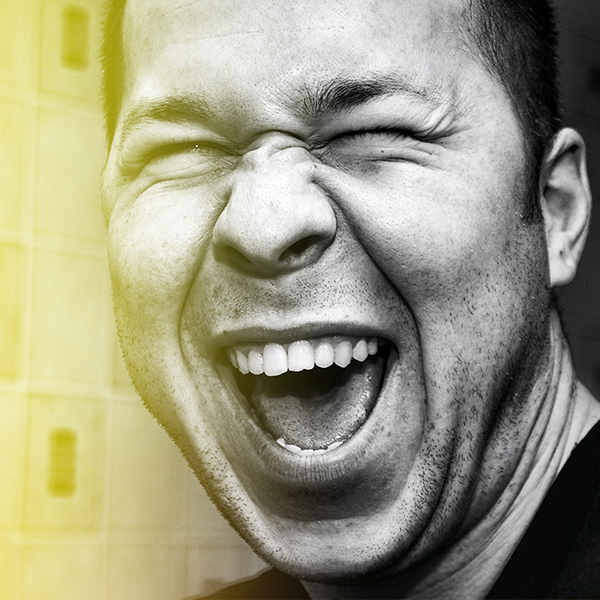The Psychology Behind Career Procrastination (and How to Overcome It)

You know something’s off. You’ve said things like “I need a change,” “I’ll update my CV soon,” or “I’ll apply after this project wraps.” But weeks go by. Nothing changes.
That’s career procrastination.
You’re not lazy. You’re capable, and yet, you stay stuck. You scroll job boards without applying. You craft plans, but never hit “send.” The only thing you’re acting on right now is your career procrastination.
Many professionals feel the weight of invisible psychological blocks, even when they’re more than equipped to move forward.
Hence, this article explores procrastination psychology, revealing what drives it and how to break free. We'll dive into the real causes, common warning signs, and practical tools for action, plus how coaching can help you kickstart your progress.
What Is Career Procrastination?
Career procrastination involves postponing decisions about your career journey that truly matter. It shows up in many ways:
- Delaying a job switch you know would benefit your growth.
- Putting off an application for promotion.
- Staying in roles that no longer fit, just because they feel safe.
- Obsessing over research without ever taking decisive steps.
It’s key to understand that you’re not lazy. Deep psychological forces, such as uncertainty, fear, and perfectionism, are working against you. Recognising this is the first empathetic step towards change.
The Psychology of Procrastination: What’s Really Going On?
Let’s unpack the psychological drivers behind delaying your career decisions – what we call procrastination psychology:
Fear of Failure
“What if I try and I’m not good enough?” This fear paralyses many high achievers. You’ve built a strong identity around competence, so the thought of stumbling feels unbearable.
Fear of Success
It may sound odd, but success brings change. A promotion could disrupt your routine. Higher expectations might leave you feeling exposed. So sometimes, playing small feels safer.
Fear of Uncertainty
Even if your current role feels unfulfilling, it at least feels predictable. The unknown is scary and having to choose is nerve‑wracking.
Perfectionism & Overthinking
You draft the perfect resume, read ten interview tips, rework cover letters endlessly. But perfection often masks procrastination: the act of not starting.
These patterns are well‑documented. In Singapore and Australia, career psychologists note that external expectations – family, culture, and hierarchy – amplify these fears. When left unchecked, they become invisible barriers.
Why It’s So Common Among High‑Performers
Ironically, this type of procrastination often strikes those who seem least likely to delay.
- Ambitious individuals: Your standards are high. The idea of falling short is intolerable.
- Capable professionals: Fully aware of your competence, you fear that any misstep might even damage your reputation.
- Cultural context: In Singapore’s hyper‑competitive environment, cultural values such as “face,” leadership expectations, and societal pressure can intensify this paralysis.
You end up rehearsing and strategising endlessly, and you stay stuck. Even research by Singaporean career consultants supports the fact that high expectations often correlate with strong inaction tendencies.

Warning Signs You’re Caught in Career Procrastination
You might be trapped if you recognise one or more of these patterns:
- Prolonged dissatisfaction: You don’t enjoy your work, but keep staying “just one more year.”
- Obsessing over planning: You spend weeks crafting “Phase One” of your promotion plan without ever sending that application.
- Waiting for the “right time”: You reassure yourself, “Once I finish this project…”
- Constant comparison: You look at colleagues climbing ladders and feel you’re behind, yet still don’t act.
These are in fact warning signs and recognising them is your wake‑up call.
Overcoming Career Procrastination: What Works
Here are proven strategies to shift from stuck to moving.
Break Big Decisions into Micro‑Steps
Instead of “apply for promotion,” define the first 15‑minute action, such as updating your CV. Then the next: reach out to your mentor. Small repetitive wins build forward momentum.
Set Real Deadlines and Not Ideal Ones
Working toward nebulous goals like “sometime this year” leaves you drifting. Instead, commit to a specific date: “Send the application by June 30th.” Share it publicly or with accountability partners to raise stakes.
Identify & Reframe Limiting Beliefs
Notice your inner narrative: “I’ll fail,” or “They’ll think I’m not ready.” Challenge it: “I’ve grown a lot.” “They expect improvement, not perfection.”
Seek Accountability
Share your goal with someone you respect, like a coach, friend, mentor. Ask them to check in weekly. Accountability converts private wishes into public commitments.
The Role of Coaching in Breaking Through Stagnation
If you’ve tried self‑help tactics but still feel blocked, professional coaching can be the catalyst you need. Coaches offer:
- Clarity: An external guide helps you see hidden patterns that are hard to spot alone.
- Confidence: Coaches act as your thinking partner, affirming decisions that feel overwhelming.
- Accountability: Regular check‑ins ensure ideas stay in motion, not just in drafts.
At The Happy Mondays Co., our career coaching process is structured yet warm. We don’t just give homework, but help you lean into action. Whether it’s mapping next‑steps or reframing fears, coaching turns good intentions into real progress.
Explore our Career Coaching page to see how we can help you move from planning to progressing.
Conclusion
Career procrastination is more than just avoidance as it is rooted in real fears: of failure, success, uncertainty, and imperfection. It’s especially common among capable professionals and in high‑pressure cultures.
But the good news is that recognition is power. By breaking down tasks, setting deadlines, challenging beliefs, and getting support (especially through coaching), you can move forward, even when it feels scary.
You’re not stuck forever. If you’re ready to step toward clarity, confidence, and real progress, check out our Career Coaching page and start turning “someday” into today.



















